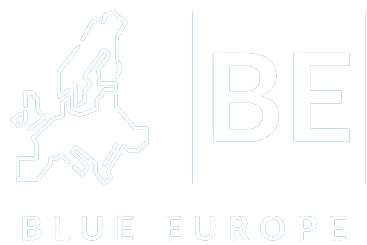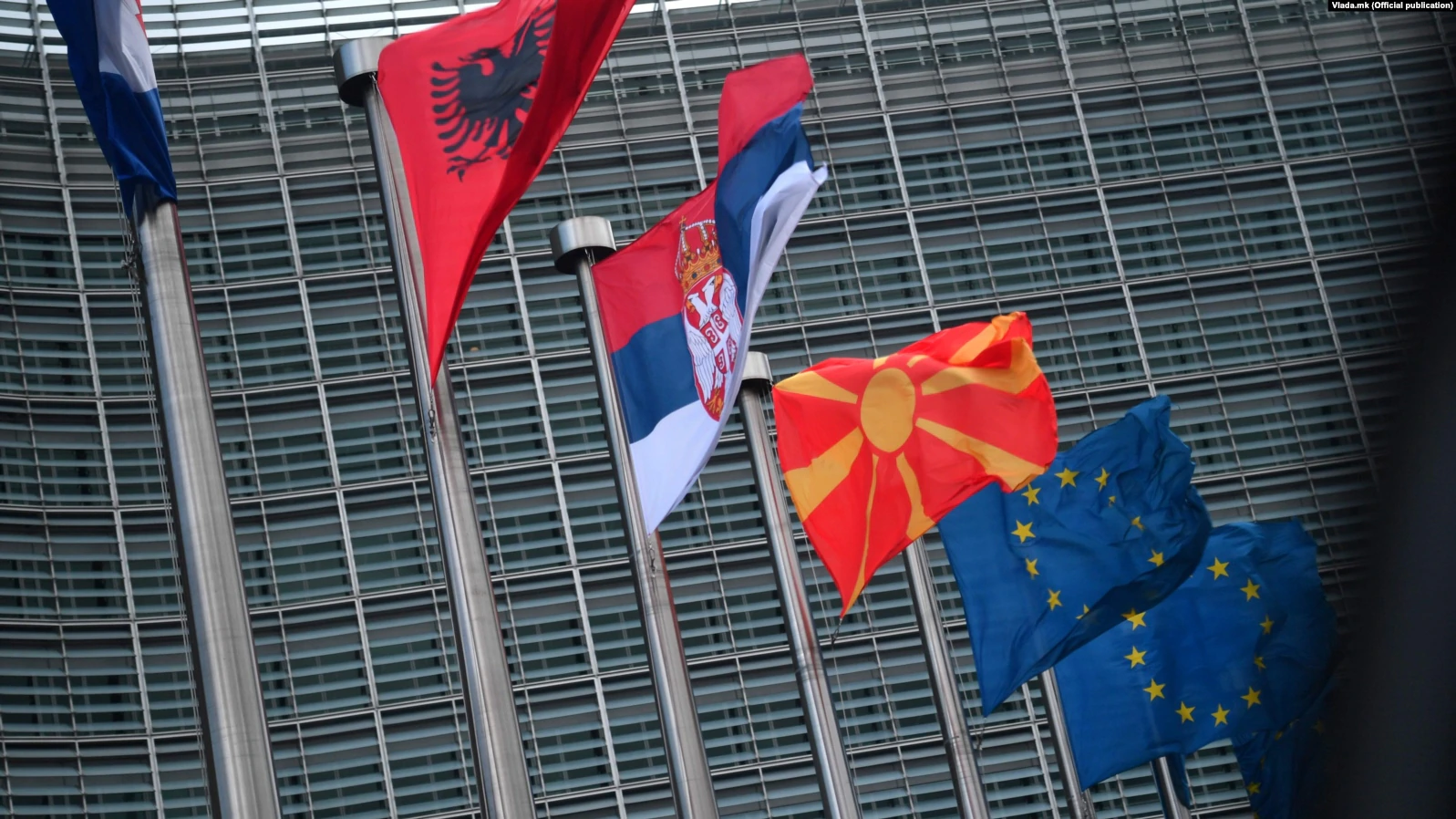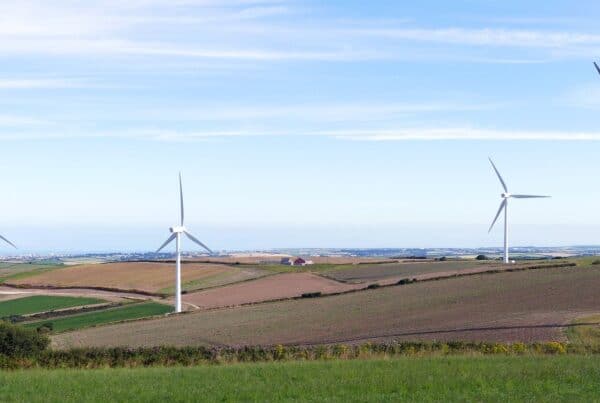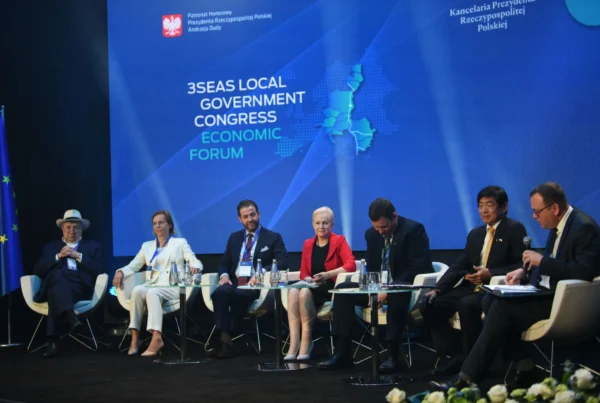For decades, the prospect of EU enlargement in the Western Balkans (WB) was seen (and invested in) as a certain process (and return on investment) – one that would bring long-term stability and economic growth. Today’s reality, however, tells a different story. While Brussels continues to reaffirm its commitment to enlargement and key regional rivals struggle to maintain a foothold, actual integration progress has been slow, riddled with institutional hesitation and growing disillusionment among the WB states themselves (Panagiotou, 2021).
1. The Historical Context of Regional Cooperation
The Western Balkans’ path to EU membership has been intricately linked to regional cooperation initiatives, beginning with the Stabilization and Association Process in 1999. Following the Thessaloniki Summit in 2003, regional collaboration was institutionalized as a core EU accession criterion, intended to reconcile historical conflicts and enhance economic integration. However, despite numerous frameworks and agreements, results have been mixed, with national interests often overriding collective commitments (Rexha, 2019).
Regional cooperation in the Balkans has evolved through three primary phases. The first phase of post-Yugoslav reconstruction (1990s-2003) focused on peacebuilding, economic reconstruction, and political stabilization following the Yugoslav wars. Key programs during this period included the Stability Pact for Southeastern Europe and the Southeast European Cooperative Initiative (SECI). The second phase (2003-2014) saw regional cooperation become a central tenet of EU accession, leading to the creation of mechanisms such as the Regional Cooperation Council (RCC) and the Southeast European Cooperation Process (SEECP), alongside increased financial support from EU institutions. The third phase (2015-Present), has been marked by a mix of EU-led initiatives, such as the Berlin Process, and alternative regional frameworks like the Open Balkan Initiative and the Three Seas Initiative (TSI), which sometimes challenge EU-led approaches (Vukasović, 2024).
Launched in 2014, the Berlin Process aimed to reaffirm the EU’s commitment to the Western Balkans while fostering regional economic and political collaboration. The initiative sought to compensate for enlargement fatigue by focusing on infrastructure, economic connectivity, and political stability. At the same time, the EU aimed to strengthen its Southeastern flank amidst increasing Chinese influence through the BRI and the 16+1 format. The Berlin Process has achieved notable progress in economic integration, particularly through the Western Balkans Investment Framework (WBIF), which prioritizes infrastructure, transport, and energy projects. Additionally, the Common Regional Market (CRM), proposed in 2020, aims to harmonize trade and mobility, aligning the region more closely with the EU Single Market.
Despite these achievements, the Berlin Process faces significant challenges. The voluntary nature of the initiative allows nationalistic local policies and inconsistent implementation to undermine commitments. Structural issues such as political corruption, weak rule of law, and unresolved ethnic tensions persist, while EU-imposed conditionalities often feel more like “moving goalposts” than a clear path toward membership (O’Brennan, 2014). Many in the region question whether the EU genuinely intends to welcome new members or if enlargement is simply a tool used to maintain influence without genuine commitments (Marusic, 2025).
In response to slow-moving EU integration efforts, Serbia, Albania, and North Macedonia launched the Open Balkan Initiative (OB) in 2021. This initiative aims to foster economic cooperation and free movement among member states, raising debates over whether it complements or undermines EU-led processes. Proponents argue that the OB, as a locally-driven project, bypasses EU bureaucracy and allows for faster economic and trade agreements. However, concerns have emerged regarding the exclusion of three out of six (Bosnia and Herzegovina, Montenegro, and Kosovo) of the ‘WB6’, which raises fears of regional fragmentation. Additionally, Serbia’s dominant role in the initiative has prompted skepticism over potential political motives (Joseph, 2022).
The European Commission has responded cautiously to the Open Balkan Initiative, refraining from endorsing it while emphasizing the need for an inclusive approach that aligns with EU standards (Bancroft, 2024). The same has happened – mutatis mutandis – with the TSI. This initiative, however, has travelled on well-trodden roads, expanding where the EU had already integrated and reaching the Adriatic without the six Balkan countries in question. Meanwhile, the TSI has sensibly shifted its priorities eastwards to Ukraine and Moldova, a trend followed by the EU even across the Black Sea to Georgia.
2. The EU’s Renewed Focus on Enlargement: Much Ado about Nothing?
The geopolitical unravelling following Russia’s invasion of Ukraine in February 2022 has reshaped the EU’s enlargement priorities, particularly concerning the Western Balkans. In fact, in the wake of the Ukraine conflict, the EU has sought to reaffirm its role as a geopolitical actor by accelerating aspects of the enlargement process. Key milestones include Bosnia and Herzegovina receiving candidate status in December 2022 and Kosovo securing visa liberalization in April 2023, effective from January 2024. However, the credibility of the enlargement process remains fragile. While symbolic gestures signal intent, tangible commitments are essential for maintaining momentum – especially with Ukraine and Georgia under the EU spotlight.
Nevertheless, the EU current focus on Ukraine’s integration, driven by the need to rebuild the country post-war, could set a positive precedent for the six Western Balkan nations. As the EU reimagines its geopolitical role amid rising global tensions, it may find it necessary to soften its enlargement policies to bring the entire CEE region into the fold, while an approach that prioritizes Ukraine while keeping the WB in limbo risks backfiring entirely (Hockenos, 2025). Moreover, if the EU accelerates Ukraine’s membership while continuing to delay the WB, it could reinforce perceptions of double standards, fuelling frustration and greater political instability in the region. Worse still, prolonged neglect could push some Balkan states to seek alternative alliances – as already happened in the past, particularly with Turkey and Russia, undermining the EU’s much needed strategic influence.
To avoid losing everything at stake, the EU could reconsider its enlargement framework and recognize that integrating the Balkans as a whole is not just a matter of policy but of long-term stability and security in Europe. In the past five years there have been several joint letters and statements from European foreign ministers urging the EU institutions to speed up the enlargement process of the Western Balkans – with Italy and Austria at the forefront. In March 2024, a group of 7 EU member nations called for “seizing the momentum and the current window of opportunity” and not risking “weakening the Union’s role” (Baccini, 2024).
If the EU is serious about enlargement, it must address these challenges with a renewed and credible strategy. This means re-engaging with the region not merely as a geopolitical afterthought but as a core part of Europe’s future. It requires confronting national leaders and implementing a multi-tiered strategy, possibly prioritising integration into EU markets and regulatory frameworks, while setting transparent and achievable benchmarks. If European leaders fail to act decisively, they risk losing the Western Balkans not just as potential members, but as reliable partners altogether.
To delve deeper into this (un)evolving dynamic, with a brief overview of Italy’s role, we have interviewed Dr. Francesco Trupia from Nicolaus Copernicus University, Toruń – Poland.[1]
3. Interview with Francesco Trupia
Conducted by Marco Uncini.
1) Considering recent international developments and the changing priorities of the EU, how likely is it that the Western Balkan countries will be able to join the European Union in the next decade?
Many have naively cloaked the EU’s fatigue eastward under the guise of “where there is a will, there is a way”. I am afraid neither can be found in the Western Balkans at present. For so many years, the EU’s conditionality has not only obstructed democratisation to the extent that potential changes have been undermined due to the danger of derailing the EU’s accession process. It has also nested inside a wide range of domestic issues to the point that most citizens (with the exception of Kosovo) no longer see the EU as an alternative path, pivoting toward other models: Turkey, Russia, China, Hungary.
Let’s look at Serbia. In 2024, the memorandum of understanding with the European Commission to establish a strategic partnership based on Rio Tinto’s lithium mine project was dubbed an essential step for Serbia’s rapprochement with Brussels and for the EU’s independent future from China’s raw materials and battery production chains. Yet this win-win scenario neutralised the political actions of Serb protesters who took to the streets because of the danger that lithium extraction may pose to agriculture, natural water reservoirs, and residents. Now, the student-led protests that mounted after the incident at Novi Sad railway station have forced the Serbian PM to resign and restore hope in the country. Unlike what we usually see in Georgia or Ukraine, however, there are no EU flags among students and protesters in Serbia. This cannot take us by surprise because, to my mind, it clearly manifests a rising Euroskepticism that may dangerously spread beyond Serbia.
Wars in the Middle East and Ukraine have also taken a toll on most citizens in the Balkans, among whom a nesting circuit of memories of violence, genocide, and dislocation roams around. Nationalists have mangled the EU’s response in support of Ukraine and its inertia toward Israel’s onslaught in Gaza to highlight the double standards of the Euro-Atlantic institutions operating in the region (especially Bosnia and Kosovo), thereby showing the hypocrisy of most pro-EU and progressive actors. The latter are crippled by the same EU’s miscalculations of the repercussions that the current geopolitical turmoil has across the Balkans. Among others, most EU countries’ reluctance to execute the ICC’s arrest warrants for Israel’s PM, his war cabinet, and Hamas leader, will further undermine the ICTY’s legacy in the Western Balkans, where war criminals are still considered national heroes. The blind support for Israel reinvigorates nationalism across the region, especially in Bosnia, where Milorad Dodik likens the “common history” of Serbs and Jews to mull over Islam and terrorism, as well as the impossible coexistence with Muslims in the Balkans and the Middle East. Paradoxically, Bulgaria’s far-right leaders line up with Palestinian authorities to mock the “Western approach” to the Middle East and Ukraine. In other words, the unsettling geopolitical events are providing a venue where history continues to be a political tool to re-orient the region’s future, tone down critical voices, and suppress alternatives that may emerge at the grassroots levels.
2) In the Western Balkans, ethnic and religious diversity has historically been both an asset and a source of tension. What tangible cultural and educational cooperation initiatives are in place to foster greater integration between the different communities and strengthen regional stability?
We mistakenly look at the Balkans as a region where culture only stocks ethnic or religious tensions. I can’t deny that decades-long legacies of past violence and historical diatribes still compromise the region from within. However, philosophers and critical voices – from Slavoj Zizek to Ivan Krastev and Renata Salecl – as well as the international recognition of literature production by Georgi Gospodinov, Kapka Kassabova, Aleksandar Hemon, Emina Smailbegović, among many others and less known intellectuals, are the testifiers of an internationally and culturally vibrant region. While the “new right” continues to reinstate orientalism by using cultural diversity as a means to mull over interlinked issues of migration, unemployment, security, etc, a myriad of initiatives, cultural programs, and grassroots cross-border initiatives try to set change in motion. It’s up to us to decide which of the two directions we want to align with. To me, no prospects of political cooperation and democratisation can take root without empowering this cascade of local initiatives. The Dokufest in Kosovo and the Sarajevo Film Festival, the online blog “Bridge of Friendships” between Bulgaria and Romania, the joint university programs between Sarajevo and Bologna, Graz and Belgrade, and many other academic cooperation, are just instructive on a cultural ground.
3) Managing migration is a priority for the EU and the Western Balkans. Which cooperation measures are having the greatest impact on regional stability and progress towards integration?
There aren’t, simply. Along the Bulgarian-Turkish borders, young refugees are found dead, resembling the situation along the Polish-Belarus border and the UE Croatian/non-EU Bosnian border. Many have died hit by trains, beaten up by the police, and left to freeze in the “jungle camps” in the Balkans. Those borders are the same crossed by thousands of escapes and war refugees during the 1990s, shot and persecuted after being forced to leave their hometowns. After the so-called “Balkan refugee crisis” in 2015, no lesson seems to have been learned.
Migration is either exploited to stock fear among citizens and rework the historical traumas over the “lurking enemies,” or manipulated by national leaders for their vested interests.
If we take into consideration the current Italian-Albanian cooperation, migration and EU accession are two faces of the same coin. Meloni’s strong ties with Albania show how the Italian government is currently using the Balkan country to provide a new migration policy vision at the EU level. Brussels seems deaf to Italy’s failures and legal constraints in executing this policy plan while deporting refugees back and forth to the Adriatic coasts. Rama is simply counting his chickens as Meloni and her European allies constitute Albania’s alternative to speed up the EU accession process and find new economic partners. The backlashes are already visible, though: Brussels is giving up on the migration issue to those who have always struggled to see migration as an opportunity and mulled over “replacement theories” and insecurity. Albania seems advancing toward the EU, most Albanians in nearby North Macedonia see their country going nowhere. France’s EU proposal has given the upper hand to Bulgaria, whose institutional standoff and reluctance to come to terms with historical and cultural issues jeopardise North Macedonia’s future in the EU. The EU itself has also decoupled, leaving no prospect of integration under these circumstances.
4) With programmes such as the EU Strategy for the Adriatic-Ionian Region (EUSAIR), can Italy promote greater cooperation with Albania and its Western Balkan neighbours, strengthening stability and development in the region?
Regional cooperation between Italy and Albania, as well as Europe and the Western Balkans, is key for the Western Balkans to step closer to the Europen Union. However, we can no longer ignore the issues at stake. The danger of a further decoupling from the whole region amidst the more urgent crises in Ukraine and the Eastern Mediterranean region is visible. In the EU’s and US’s political agenda, the Western Balkans are not a top priority. Along the Adriatic axis, it is very unlikely that Italy alone can pave the way to a new EU approach toward the region. Without an EU-led integration plan that places people’s needs and demands at the centre of Europeneisation, engaging with the peripheries and critical voices there, I am afraid that disillusionment in the Western Balkans will grow. Another EU-led improvident plan may definitely close the future of the region in the EU: this is a scenario to avoid at all costs.
References
Baccini, F. (2024, March 19). Bosnia gets a boost from 7 EU countries. Italy included. https://www.eunews.it/en/2024/03/19/a-group-of-7-eu-countries-calls-for-immediate-opening-of-accession-negotiations-with-bosnia-and-herzegovina/
Bancroft, I. (2024, July 5). Western Balkans Six Need to Work Together for Sake of EU Enlargement. Balkan Insight. https://balkaninsight.com/2024/07/05/western-balkans-six-need-to-work-together-for-sake-of-eu-enlargement/
Hockenos, P. (2025, February 11). The EU’s Plan for Ukraine Could Easily Backfire. Foreign Policy. https://foreignpolicy.com/2023/11/16/ukraine-europe-eu-accession-expansion-russia-balkans-backfire/
Joseph, E. P. (2022, June 15). Open Balkan(s) is Not Just Unwise. It’s Dangerous. Balkan Insight. https://balkaninsight.com/2022/06/15/open-balkans-is-not-just-unwise-its-dangerous/
Marusic, B. H., Damir. (2025, February 11). The Balkans Don’t Believe the EU Anymore. Foreign Policy. https://foreignpolicy.com/2021/08/25/balkans-dont-believe-eu-anymore-albania-macedonia-rama-vucic/
O’Brennan, J. (2014). ‘On the Slow Train to Nowhere?’ The European Union, ‘Enlargement Fatigue’ and the Western Balkans. European Foreign Affairs Review, 19(2). https://kluwerlawonline.com/api/Product/CitationPDFURL?file=Journals\EERR\EERR2014011.pdf
Panagiotou, R. (2021). The Western Balkans between Russia and the European Union: Perceptions, reality, and impact on enlargement. Journal of Contemporary European Studies, 29(2), 219–233. https://doi.org/10.1080/14782804.2020.1798218
Rexha, A. (2019). An analysis of the European Enlargement Policy through years: The case of Western Balkans. ILIRIA International Review, 9(2), 233–252.
Vukasović, D. (2024). The uncertainty of waiting: The liminality of the Western Balkans in the process of EU enlargement. Journal of Contemporary European Studies, 0(0), 1–17. https://doi.org/10.1080/14782804.2024.2365314
Endnotes
- Dr. Francesco Trupia (LinkedIn) is a Research Adjunct at Nicolaus Copernicus University in Toruń, Poland, where he leads the National Science Centre-funded project on Balkan Muslim identity. He has conducted research at several institutions, including Humboldt University in Berlin, the Centre for Migration Research at the University of Warsaw, and the Centre of Political History at the University of Antwerp. He holds a PhD in Political Philosophy from Sofia University and regularly contributes to several research centres and think tanks. His research mostly focuses on identity politics, minority rights, and civil society in Southeast Europe and the Caucasus. ↑





